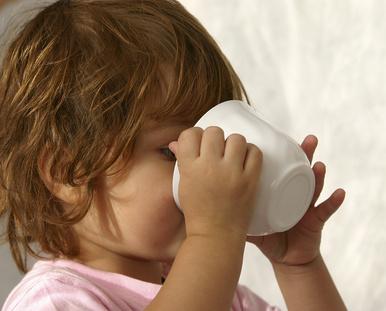Rotavirus is such a common disease that most people, adults and children alike, have had rotavirus at least once in their lives, although subsequent infections tend to be mild. Seasonally occurring, Dr. Robert W. Sears reports in “The Vaccine Book” that it starts each year in November in the southwestern states and travels easterly until about March. The most severe affect of rotavirus is dehydration, with infants and young children most at risk.
About Rotaviruses
Rotavirus is transmitted through fecal to oral contact and through saliva. Unusual in its strength, this virus can live for weeks outside the body on surfaces, according to the Dr. Green website, and is difficult to kill with regular cleaning. Washing hands, yours and your child’s, regularly and before eating greatly helps to prevent rotavirus infections.
Symptoms
Rotavirus comes in stages and resembles stomach flu in the beginning. At first, the infected child may have a fever, vomit and have diarrhea, all of which contribute to dehydration. You may suspect that it is rotavirus when the fever and vomiting subside but the diarrhea continues, sometimes for weeks, writes Sears. The diarrhea associated with the rotavirus has a sickly smell that parents tend to recognize once they are experienced with this virus.
Home Treatments
The most important aspect of treating someone, especially infants and children is to concentrate on preventing dehydration. Give your child fluids in any form he will take it–water, milk, juice, etc. Do your best to get your child to drink at least a sip of liquids every few minutes. If your are breastfeeding, encourage your infant to breastfeed as often as possible. Sears also recommends probiotic powder to reduce the duration of the virus. Yogurt is another easy source of probiotics.
When to Seek Medical Treatment
In the American Academy of Pediatrics book “Caring for Your Baby and Young Child,” it is recommended to call the doctor immediately if your child is having diarrhea every one to two hours or more. You should also consult your doctor if your child refuses to drink or is exceptionally lethargic. He may need IV fluids and/or hospitalization until the worst symptoms have passed.
Vaccination
In 2006, an oral vaccine for rotavirus was approved for use. The AAP recommends infants be given this vaccine at age 2 and 4 months, with some also needing another at 6 months. The vaccine can prevent the disease in most cases, or reduce the severity of the disease for those that still catch this virus. Sears writes, “Vaccinating all infants would help decrease and maybe someday eliminate this disease from our population.”
Photo Credit
- when i’m sick image by Renata Osinska from Fotolia.com





